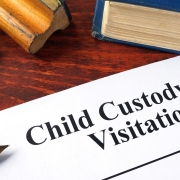Choosing the Right Divorce Mediator
Next to the loss of a loved one it is said that divorce is arguably the most stressful experience one can have. It is important that you pick a divorce mediator who can guide you through the complex divorce process in Massachusetts.
Trust, comfort, and confidence in your divorce mediator is essential. Trust in their integrity. Comfort with their style and approach. And confidence in their knowledge and skills. Knowing how to choose a divorce mediator is an important step in moving forward with a collaborative divorce process.
Questions to Ask When Hiring a Divorce Mediator in Massachusetts
- How long have you been mediating?
Look for someone with experience. How many divorce mediations are they currently working on? - What is your background and why did you become a mediator?
Some mediators are social workers, some attorneys, some financial experts, and more. Why did they get in to mediation? - What differentiates you from other mediators?
Every mediator has strengths they bring to the table and they should match what you believe you need. What sets them apart from other mediators? - What are your rates?
Mediators should be up front with all associated divorce mediation costs. - How long will this process take?
Mediators cannot predict the future. However, they should be able to guesstimate a range of sessions you will need after asking you a few questions. - How does the paperwork get completed?
Some mediators provide the court forms and others don’t. Some draft the Separation Agreement and others only a Memorandum of Understanding (MOU) that would be brought to an attorney for drafting. A good divorce mediator should outline in detail the services offered. - How do you handle conflict?
Every mediator has approaches they use to manage conflict that arise in divorce negotiations. They should be able to describe some of the ways they manage difficult conversations. - What does the divorce process involve?
In any consultation a mediator should be able to provide a general overview of a 1A uncontested divorce process. Ask about the decisions that need to be made, the legal standards the probate and family court use to approve decisions, and for a description of the hearing process. - How were you trained and how do you keep up with current practice?
Most mediators affiliate with mediation organizations. Others have continuing education requirements as part of their professional licensing. - How would you describe your mediation style?
There are formal styles (facilitative, evaluative, and transformative). Mediators should be able to describe their own personal style. - What ethics, values and principles do you follow?
Any mediator should describe the core principles of mediation. Similarly, they should describe their personal guiding values.
The Single Most Important Factor in How to Choose a Divorce Mediator in Massachusetts (or anywhere!)
Fit.
You will be sharing deeply personal information. Determining your financial future. Crafting a co-parenting plan to help your children have the best possible childhood.
Bottom line: it is critical that you both feel secure and comfort with your mediator.
Trying to choose a divorce mediator in Massachusetts or New England? Contact Ben Stich if you would like to ask him any of these questions in a free divorce mediation consultation.






